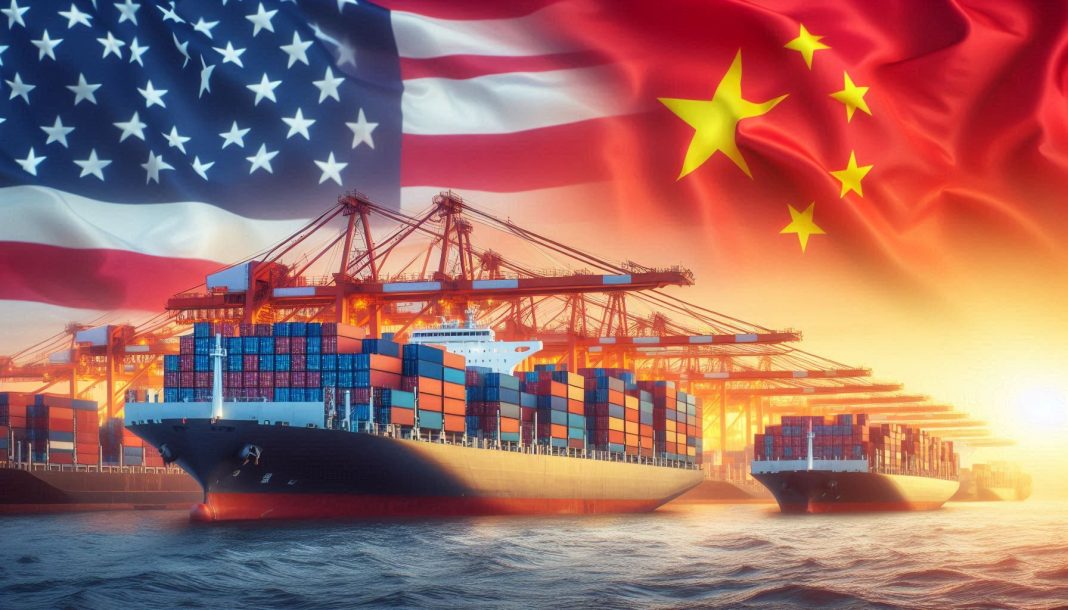China has issued a strong rebuttal against the latest move by US President Donald Trump, who called on NATO allies to impose a steep tariff of 50 to 100 per cent on Chinese goods. The proposal, aimed at pressuring China over its alleged support to Russia in the ongoing Ukraine war, triggered sharp criticism from Beijing.
China Condemns US Tariff Proposal Amid Ukraine War
Chinese Foreign Minister Wang Yi addressed the matter during a press conference in Ljubljana, Slovenia, following a meeting with Slovenia’s Deputy Prime Minister and Minister of Foreign and European Affairs, Tanja Fajon. Wang emphasized that China does not engage in wars and that sanctions and tariffs would only complicate international conflicts rather than solve them.
“China does not participate in or plan wars. What China does is to encourage peace talks and promote political settlement of hotspot issues through dialogue,” Wang said, according to China Daily. The foreign minister added that promoting multilateralism and upholding international principles are crucial in the current global climate, which he described as marked by “intertwined chaos and continuous conflicts.”
💥 Trump calls India and Russia ‘dead economies’ — 25% tariff sparks global outrage
Wang Yi stressed the importance of friendly relations between China and Europe. He said, “China and Europe should be friends rather than rivals, and should cooperate rather than confront each other. Making the right choices amid the greatest changes in a century demonstrates the responsibilities that both sides should fulfill towards history and the people,” as reported by Global Times.
Trump Pushes for Heavy Tariffs on China
The remarks from China came shortly after Trump renewed his call for extreme tariffs on Chinese imports. On September 14, Trump suggested that NATO impose duties of 50 per cent to 100 per cent on China, arguing that such measures would weaken China’s influence over Russia. He described the war in Ukraine as “deadly but ridiculous” and claimed that tariffs could play a role in ending it.
“I believe that this, plus NATO, as a group, placing 50 per cent to 100 per cent TARIFFS ON CHINA, to be fully withdrawn after the WAR with Russia and Ukraine is ended, will also be of great help in ENDING this deadly, but RIDICULOUS, WAR,” Trump wrote on Truth Social.
Trump links new tariffs on India and China to joint EU action against Russia
The US president also shifted his focus to European allies. He criticized European countries for buying Russian oil and claimed that their sanctions on Moscow were “not tough enough.” Trump insisted that any US tariffs he supports would need to be matched by stricter measures from Europe to have a meaningful impact.
Earlier, Trump had publicly accused Chinese President Xi Jinping of “conspiring against” the United States, shortly after China held its largest-ever military parade on September 3. The parade was attended by North Korean leader Kim Jong Un and Russian President Vladimir Putin, highlighting Beijing’s growing diplomatic engagement with both countries. Despite his accusation, Trump also stated that his personal ties with Chinese leadership remained good.
China Calls for Peace Amid Tariff Threats
In response to Trump’s tariff statements, Wang Yi underscored China’s commitment to peace and multilateral diplomacy. He highlighted that global conflicts require dialogue and political solutions rather than sanctions and tariffs. By emphasizing multilateral mechanisms, China seeks to maintain stability and reduce tensions in regions affected by international disputes.
The Chinese foreign minister also drew attention to the broader responsibilities of nations during turbulent times, noting that cooperation, rather than confrontation, is key to addressing global crises. Wang’s comments reinforced Beijing’s position that China’s role is not to escalate conflicts but to encourage negotiations and peaceful resolutions.
⛽ Trump backs Pakistan oil plan, slams India with tariffs — says ‘maybe they’ll sell to India!’
Trump’s recent tariff proposals notably excluded India, signaling a possible separate diplomatic engagement between Washington and New Delhi. Previously, Trump had targeted India with similar tariff measures, accusing it of indirectly supporting Russia through large oil imports.
China’s response reflects a strong diplomatic pushback against the US narrative, emphasizing peace talks, multilateral collaboration, and the avoidance of punitive measures such as tariffs that could worsen international instability. Wang Yi’s statements underline China’s continued focus on dialogue and political settlements amid the ongoing Ukraine conflict and rising geopolitical tensions.

